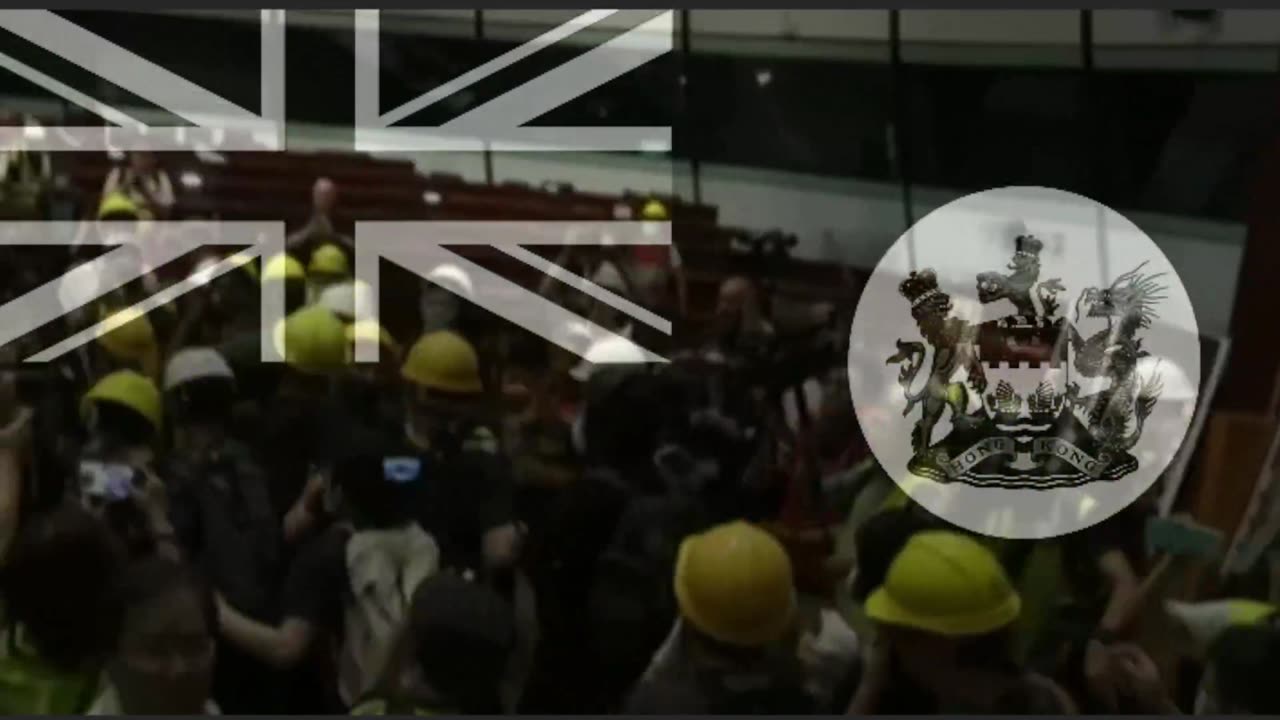Premium Only Content

THE CROWN COLONY WAVE
Hong Kong nationalism (Chinese: 香港民族主義 or 香港主義) is a system of thought that spans the folklore, culture, history, geography, society, and politics of Hong Kong. It reflects a strong desire to protect democracy in Hong Kong, to oppose mainlandization, and to preserve local Hong Kong identity.[2] As such, many Hong Kong nationalists are opposed to Chinese state nationalism (中國國家主義).[3]
Hong Kong nationalism is generally considered a new phenomenon. The self-identification of the Hong Kong people became considered as nationalism when local discourse developed claims of self-determination, autonomy and varying degrees of separation from China.[4]
History
See also: Anti-communism in China § Hong Kong, and Localism in Hong Kong
Tens of thousands of people moved to Hong Kong in 1949 to escape the Chinese Communist Revolution. The population of Hong Kong increased from 1.8 million in 1947 to 2.2 million in 1951. As many mainland Chinese fled to Hong Kong over the next 30 years, the population of Hong Kong increased by 1 million every 10 years. Those who experienced hunger and political struggle under the Chinese Communist Party (CCP) internalized stronger anti-communist sentiments than Hong Kongers who didn't experience CCP rule.[5]
A distinct sense of Hong Kong identity existed since the 1970s, but Hong Kong nationalist sentiment didn't significantly appear until the Tiananmen massacre of 1989.[4] Both the Tiananmen massacre and the pro-democracy movement in colonial Hong Kong strengthened feelings of division between Hong Kong and mainland China.[4]
Since the 2010s, the Hong Kong nationalist movement has emerged as the "localist camp".[6]
Criticism
See also: Anti-Chinese sentiment and Racism in China § In Hong Kong
Some media outlets have criticized the anti-mainland China sentiment that exists inside Hong Kong's pro-democracy movement, in part for its provocation of Chinese nationalists among the mainland population. Some have claimed that this enables Chinese Communist Party leadership to reap political gains through a hardline stance.[7]
-
 19:35
19:35
Real Estate
14 days ago $1.68 earnedMargin Debt HITS DANGEROUS NEW LEVEL: Your House WILL BE TAKEN
8.05K3 -
 4:03:48
4:03:48
Alex Zedra
7 hours agoLIVE! Battlefield 6
43.6K2 -
 2:03:15
2:03:15
Inverted World Live
9 hours agoProbe News: 3I Atlas is Spewing Water | Ep. 125
119K22 -
 3:02:07
3:02:07
TimcastIRL
8 hours agoTrump Admin CATCHES Illegal Immigrant POLICE OFFICER, Democrats ARM Illegal In Chicago | Timcast IRL
245K131 -
 4:39:39
4:39:39
SpartakusLIVE
8 hours agoNEW Mode - ZOMBIES || LAST Stream from CREATOR HOUSE
60K7 -
 3:36:25
3:36:25
The Charlie Kirk Show
10 hours agoTHOUGHTCRIME Ep. 101 The New York City Communist Debate? MAGA vs Mamdani? Medal of Freedom Reactions
161K63 -
 2:14:47
2:14:47
Flyover Conservatives
1 day agoSatan’s Agenda vs. God’s Timeline: Witchcraft, Israel, and the Assassination of Charlie Kirk w/ Robin D. Bullock and Amanda Grace | FOC Show
62.4K16 -
 3:14:57
3:14:57
PandaSub2000
5 days agoBye Sweet Carole | MIDNIGHT ADVENTURE CLUB (Original Live Version)
45.7K1 -
 1:22:51
1:22:51
Glenn Greenwald
12 hours agoThe Irony of John Bolton's Classified Docs Indictment; Prominent Dems Now Stutter When Asked About AIPAC; Celebs in Saudi Arabia Controversy: What Does it Reveal? | SYSTEM UPDATE #532
108K65 -
 39:25
39:25
Donald Trump Jr.
11 hours agoFBI's Incredible Crime Crackdown, Plus my Message to ABC!! | TRIGGERED Ep.283
159K118